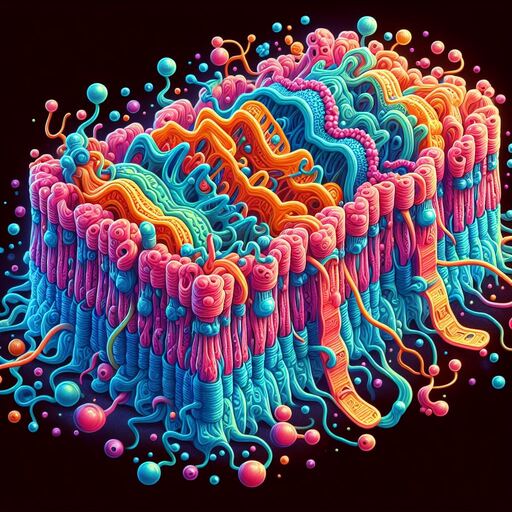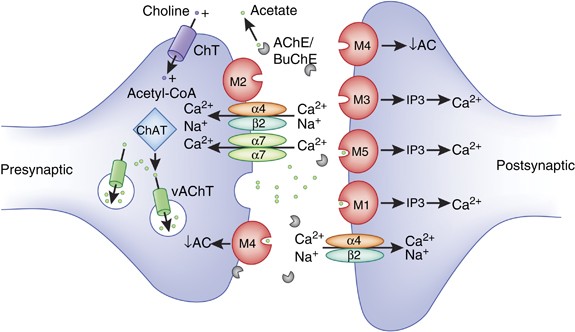Acetylcholine Receptors
Acetylcholine receptors are proteins that bind to the neurotransmitter acetylcholine and play an important role in synaptic transmission in the nervous system. These receptors are divided into two main categories: nicotinic and muscarinic receptors.
Nicotinic receptors are found on the axon terminals of motor neurons, where they bind to the neurotransmitter nicotine and trigger the release of acetylcholine. Nicotinic receptors are involved in the regulation of muscle tone, heart rate, and blood pressure.
Muscarinic receptors are found on the axon terminals of sensory neurons and interneurons in the nervous system, where they bind to acetylcholine and trigger the release of other neurotransmitters such as glutamate or GABA. Muscarinic receptors are involved in a wide range of physiological processes such as learning and memory, mood regulation, and autonomic functions such as heart rate and blood pressure control.
Acetylcholine receptors can be activated by drugs such as acetylcholinesterase inhibitors (such as donepezil), which increase the levels of acetylcholine in the brain. Other drugs such as cholinergic agonists (such as pilocarpine) can also activate muscarinic receptors and cause increased heart rate, sweating, and bronchodilation.
Acetylcholine receptors are important for normal brain function and can be disrupted in various neurological disorders such as Alzheimer’s disease, Parkinson’s disease, and depression. Therefore, understanding the role of acetylcholine receptors in the nervous system is crucial for developing new treatments for these conditions.

